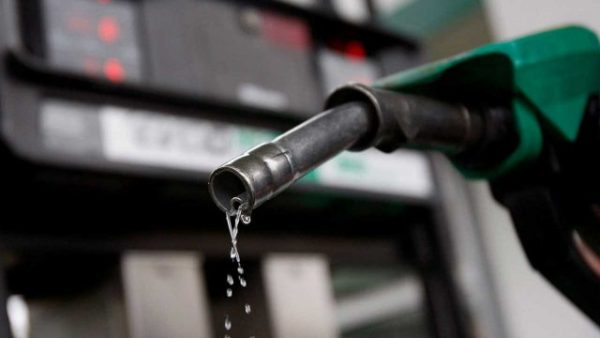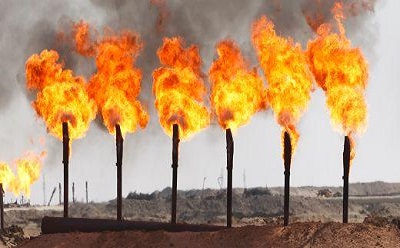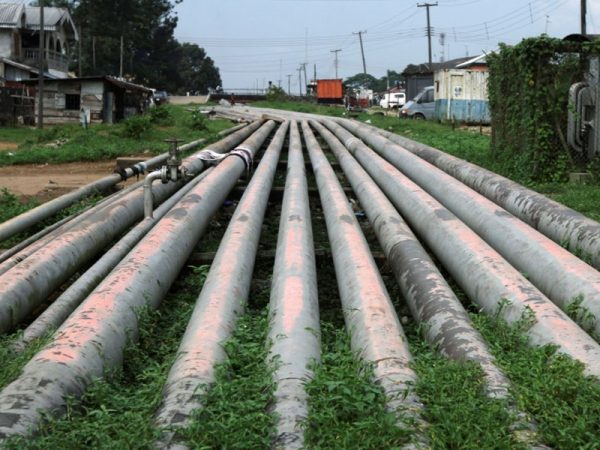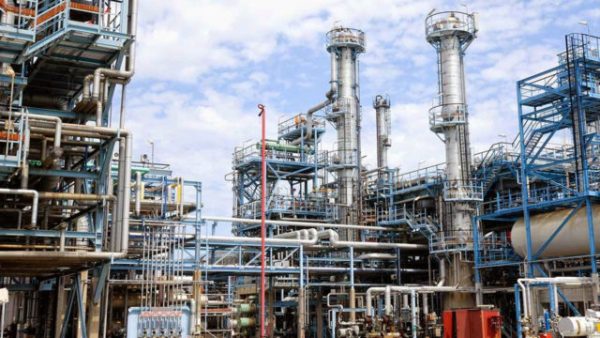FG targets 4mbpd oil production, tasks local firms on IOCs’ divestments, others
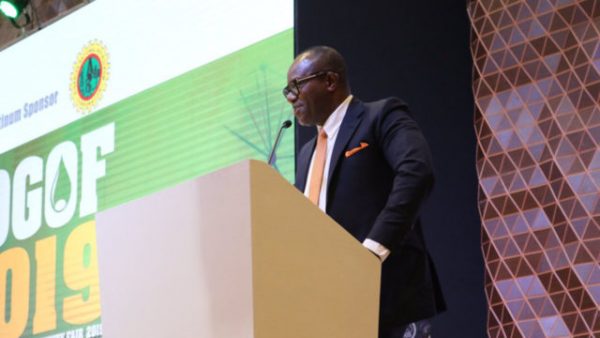
The Minister of State for Petroleum Resources, Ibe Kachikwu has tasked indigenous operators to step up their investments and take over major operations from international oil companies, especially as many are already considering divesting and charting new paths.
Besides, the Minister emphasised the need to double oil production to four million barrels per day as against the present daily turnover of between 1.9 to 2mbpd.
According to him, changes in the global oil and gas industry are presently challenging the present exploration and investment strategies as oil is fast becoming a degenerating asset with alternative sources of energy taking over and attracting new investments.
He noted that while the world is moving on from fossil fuels, Nigeria was yet to take advantage of the opportunities in the sector and design strategies to harness advantages of renewables.
He therefore urged indigenous firms to take over and stop playing safe if they will benefit from the opportunities availed through new trends in the industry.
Kachikwu said on Thursday that the Federal government has succeeded in ensuring that cost of crude production was reduced to $23 per barrel from about $32, adding that some companies in the Joint Venture with NNPC have already driven the cost down to $15.
Meanwhile, the Standards Organisation of Nigeria (SON), has posed the same challenge to Small and Medium Scale businesses in Nigeria to take advantage of the African market as a strategy to boast the nation’s economy.
Speaking in Abuja at an event where 14 firms were certified on the Mandatory Conformity Assessment Programme (MANCAP), the Director-General of SON, Osita Aboloma, stated that Nigerian entrepreneurs remained the key solutions to the nation’s economic challenges.
Represented by SON’s Director of Operations, Dauda Yakubu, noted that the agency would ensure that Nigerian products meet acceptable global qualities to enable the exportation of made-in-Nigerian products.
Advising the certified companies to prioritise quality, Aboloma warned that the certificate would be revoked if the organisations are found wanting.
The MANCAP is a mandatory product certification scheme put in place by SON to ensure that all locally manufactured products in the country conform to the relevant Nigerian Industrial Standards (NIS) before such products are presented for sale in the market or exported.
Kachikwu, during the opening ceremony of the 2019 Nigeria Oil and Gas Opportunities fair in Yenagoa said henceforth, approval for projects in the petroleum industry would be based on the cost of producing oil and gas adding that efforts were on to further ensure the cost were brought down to below $15 per barrel.
He added that the Federal Government was keen on ensuring that the country’s refineries work.
He further noted that efforts to bring down cost of production should not be by the government or through policies, but should be driven by the private sector.
Kachikwu said that government was also working towards ensuring zero gas flare by 2020, adding that the present adminstration had impacted positively in the oil producing States
The Minister further stated that henceforth, oil companies must take the initiative to ensure stability in their area of operations.
He commended the NCDMB complex, which he said would be a rally point for stakeholders in the sector.
Besides, the Executive Secretary, Nigerian Content Development and Monitoring Board (NCDMB), Simbi Wabote called for policies to further drive establishment of modular refineries and local production of LPG cylinders.
According to Wabote, there are multiple opportunities in the oil and gas sector yet to be harnessed by indigenous operators as policies have been designed to drive the implementation by operators.
Speaking on “Maximizing oil and gas industry for benefit of Nigerian people”, Wabote explained that despite the various achievements recorded in the milestones set in 2017, opportunities are availed to indigenous operators who take advantage of the five policy frameworks designed for the growth of the industry.
Specifically, he identified the opportunities to include ones driven by policies, funds, infrastructure, linkages and people, adding that recent IEA data revealed the rising demand for gas, especially from Africa, necessitating Nigeria to maximise the opportunities and play a key role in the sector.
On his part, Bayelsa State Governor, Seriake Dickson, assured operators of the commitment to stability in the state and region by oil producing state leaders.
He also emphasised the need for the international oil companies to commit to the environmental issues raised by communities adding that addressing such concerns further help the state administrators to make the environment conducive for their operations.
A Director at the Bank of Industry, Jack King, said the bank would provide financial support to certified companies as the validation would give credence and create market for the products.
Pledged to support in the drive towards quality products, King said: “SON certified products or businesses are given much easier access to finance by BOI.
“We believe that the Mandatory Conformity Assessment Programme (MANCAP) for all locally manufactured products in the country and recertification of such products after the initial three year period will drive competitiveness, lead to economies of scale and allow innovation in the real sector.”
The Federal Capital Territory Coordinator, SON, Gambo Dimka noted certification has a lot gain for products acceptance regionally and globally.
He said it government would patronize products with the MANCAP, adding that SON would do everything possible to make goods made Nigeria meet adequate standard.
Also speaking at the event, the Director General of Nigerian Electricity Management Services Agency (NEMSA), Peter Ewesor warned against use and manufacturing of substandard electrical products.
Ewesor noted that improving on quality remained critical in the country, stressing that the agency would collaborate to deal with fake and substandard electrical products in Nigeria.




